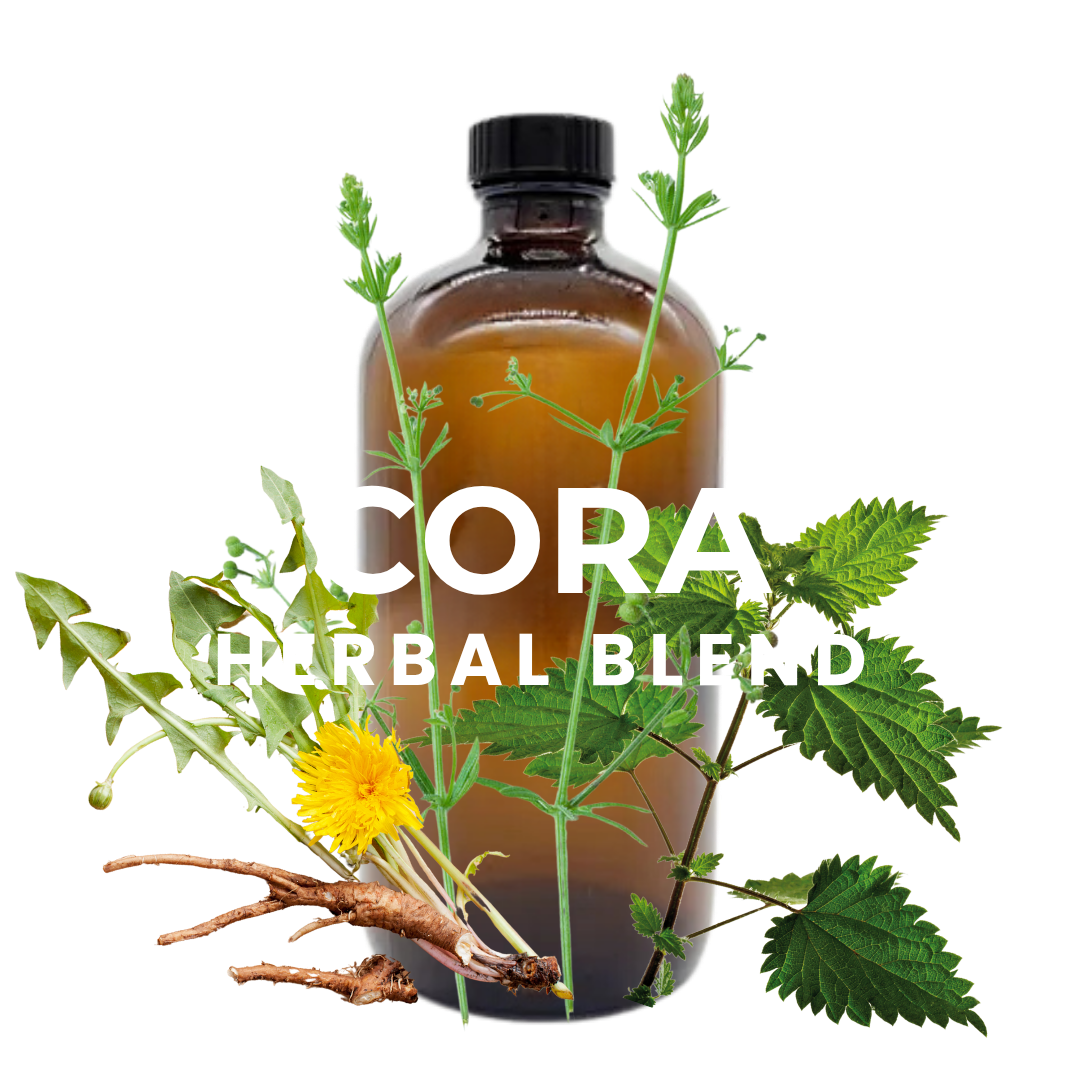Phytochemical Actions
Anti-inflammatory, antioxidant, antiallergic, antirheumatic, astringent, diuretic, haemostatic/styptic, hypoglycaemic, nephroprotective, nutritive, cholagogue, choleretic, hepatoprotective, hypolipidaemic, laxative (mild), lymphatic.
Precautions and Contraindications
Do not use in individuals with:
– known allergy to the Asteraceae plant family and/or nettle
– gallbladder obstruction and/or cholelithiasis
– intestinal obstruction
Pregnancy Safe
(Based on the Therapeutic Goods Administration’s classifications for prescribing medicines in pregnancy)
Contains category B2 herbs. Please notify us if you are pregnant or planning on becoming pregnant so that we may alter your dosage as necessary.
Lactation Safe
Compatible with lactation.
Potential Herb/Drug Interactions
Lithium: Consumption of clivers (Galium aparine), dandelion leaf (Taraxacum officinale), and nettle leaf (Urtica dioica) when taken alongside lithium has a theoretical increased risk of drug toxicity due to potential diuretic activity, which may reduce lithium excretion and increase the risk of lithium toxicity. Monitoring is essential.
Antidiabetic/hypoglycaemic drugs: Consumption of dandelion leaf, dandelion root (Taraxacum officinale), and nettle leaf when taken alongside antidiabetic/hypoglycaemic drugs has a theoretical risk of additive effects due to potential antidiabetic/hypoglycaemic activity. Monitoring is essential.
Diuretic drugs (potassium-sparing diuretics): Consumption of dandelion leaf when taken alongside diuretic drugs has a theoretical risk of hyperkalaemia and additive diuretic actions due to dandelion leaf’s high potassium content and diuretic activity. Monitoring is essential.
Consumption of nettle leaf when taken alongside diuretic drugs has a theoretical risk of increased potassium loss based on the potential for increased potassium loss with the overuse of nettle leaf. Nettle leaf should be restricted to short-term use in some cases, and monitoring is essential.
Quinolone antibiotics: Consumption of dandelion leaf when taken alongside quinolone antibiotics has a theoretical risk of decreased drug availability due to the high mineral content of dandelion leaf which may theoretically form insoluble complexes with quinolone antibiotics. Separate doses may prove beneficial, but monitoring is essential.
Anticoagulant/antiplatelet drugs: Consumption of dandelion root when taken alongside anticoagulant/antiplatelet drugs has a theoretical increased risk of bleeding due to in vitro evidence that dandelion root may inhibit platelet aggregation. Monitoring is essential.
Glucuronidated drugs: Consumption of dandelion root when taken alongside glucuronidated drugs has a theoretical influence upon drug metabolism due to preliminary evidence which suggests dandelion root may induce the phase II enzyme UDP-glucuronosyltransferase. Monitoring is essential.
Drugs that are CYP1A2 substrates: Consumption of dandelion root when taken alongside drugs that are CYP1A2 substrates has a theoretical influence upon drug metabolism due to dandelion root’s theoretical inhibition of these substrates, which may increase drug concentrations. Monitoring is essential.
Warfarin: Consumption of nettle leaf when taken alongside warfarin has a theoretical antagonistic effect due to the vitamin K content in nettle leaf which may theoretically act as an antagonist to Warfarin. Caution must be taken with this combination.
Antihypertensive drugs: Consumption of nettle leaf when taken alongside antihypertensive drugs has a theoretical risk of additive effects due to nettle leaf’s potential hypotensive activity. Monitoring is essential.
Ingredients
A blend of nettle leaf (Urtica dioica), dandelion leaf (Taraxacum officinale), dandelion root (Taraxacum officinale), and clivers (Galium aparine).
*Our products are hand blended in small batches for quality and consistency, using the best ingredients available, ensuring you get the most potent benefits out of every blend.
Disclaimer
Any statements made on this website have not been evaluated by the Australian Therapeutic Goods Administration (TGA) or Food and Drug Administration (FDA). Product information and statements made are not intended to diagnose, prevent, treat or cure any disease.

